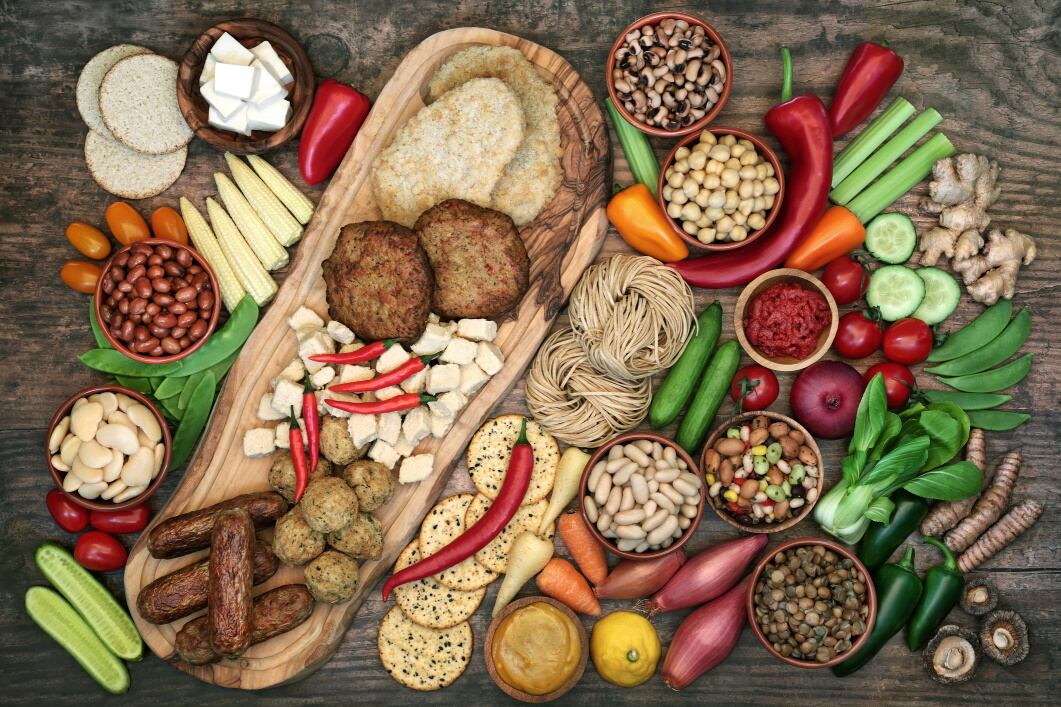From wurst sausages to veal schnitzels and German quark, Germany has a long-standing food culture rich with meat and dairy.
A new report produced by ProVeg International, however, which leverages data from EU-funded project Smart Protein, suggests Germany is losing its traditional appetite for meat, and potentially dairy.
The survey asked more than 7,500 people in Germany and nine other European countries – Austria, Denmark, France, Italy, the Netherlands, Poland, Romania, Spain, and the UK – about their attitudes towards the consumption of plant-based and conventional foods.
Findings revealed that Germany has the highest share, amongst analysed countries, of meat reducers, after Romania.
Germany has the most plant-based eaters in Europe
Amongst the key findings garnered from Smart Protein’s data is that 10% of German consumers are plant-based eaters – meaning they follow either a vegetarian or vegan diet.
This makes Germany the country with the highest share of plant-based eaters among the analysed countries. A total of 30% of Germans identify as flexitarian.
For Prof Armando Perez-Cueto from Umeå University’s Department of Food, Nutrition and Culinary Science, and one of the Smart Protein collaborators, this finding is ‘not surprising’. “Germany has been, for a while, the country with the largest plant-based eaters in the EU, according to available information,” he told FoodNavigator.
What is perhaps more surprising is the percentage of German consumers (51%) who say they have reduced their meat consumption in the past year. From a dairy perspective, 32% of Germans said they will consume fewer milk, yoghurt and cheese products in the next six months.
“It is possible that health awareness had increased due to COVID, but also, you need to consider the holistic contribution of dietary guidelines, strong campaigns in Germany for healthier eating, and also the role of social media,” reasoned the professor.
“Plus, from Smart Protein data, it seems that Germans and Austrians experience barriers to dietary shift to a lesser extend than consumers in other EU countries.”
For ProVeg International, reduction in Germany’s meat consumption can be attributed to growing awareness of human and planetary health. “The awareness about the need for healthy as well as environmentally- and climate-friendly nutrition has increased in Germany,” Dirk Liebenberg, senior project manager at ProVeg International told this publication.
‘Tremendous’ potential for plant-based foods
Of all plant-based products available in Germany, plant-based milk was deemed the most popular, with 28% of respondents consuming it once a week. Plant-based yoghurt is consumed by 21% at least once a week, followed by plant-based poultry and beef (20% at least once a week).
The market for plant-based dairy products counts among the largest and fastest growing markets in Europe, but Germans would like to see more offerings on-shelf – notably plant-based cream cheese (32%), sliced cheese (32%), and plant-based mozzarella (31%) in supermarkets.
In meat analogues, German consumers wish they could buy more plant-based minced meat and burger patties (32%), and chicken breasts and sausages (30%) in supermarkets. In plant-based fish, German consumers want to buy more plant-based fish sticks (27%) and smoked salmon (22%) in-store.
In saying this, the plant-based meat market in Germany was found to be the fastest growing among the analysed European countries. “Over the last three years, meat alternatives have become mainstream in Germany,” said the ProVeg’s Liebenberg.
“That is to say, they are available at discount stores under private labels and have slowly reached community category. Germany has thereby caught up in large parts with the front runner, the UK.”
From a price point perspective, respondents said they were more likely to pay more for plant-based meat than for animal-based meat. A total of 26% said they were likely to pay a higher price if the plant-based product had the same taste and texture as animal-based meat.
Overall, ProVeg International believes the findings suggest a ‘growing desire’ among the German population to diversify their diet away from meat and dairy products and to try out alternative options.
“It also shows there is tremendous potential for plant-based foods in Germany and across Europe and we hope companies will be encouraged to develop more and better products,” said Matthias Rohra, executive director Germany at ProVeg International.




